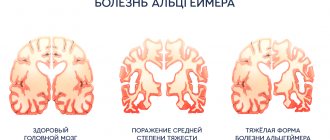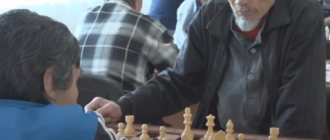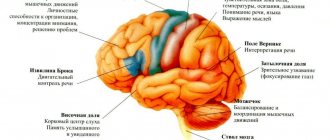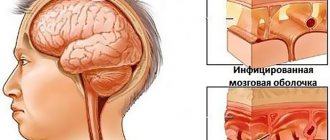Alzheimer's disease is a neurodegenerative pathology with progressive senile dementia. Characterized by the development of cognitive disorders and dementia. Neurological disorders in Alzheimer's disease are caused by the formation of insoluble, hard amyloid proteins (senile plaques) that envelop and destroy functional brain cells. Gradually the process spreads, capturing new areas.
Modern medicine can only offer palliative treatment. Complex therapy and proper care can significantly slow down destructive processes, increase the duration and maintain the quality of life of patients with Alzheimer's disease.
Causes of the disease
According to statistics, symptoms of Alzheimer's disease develop in 5-8 people per 1000 population. Every second case of dementia is caused by this particular pathology. In the last decade, there has been an increase in incidence, but doctors still find it difficult to name the exact causes of neurodegenerative processes. Increased risks have been proven in the age group over 65 years of age. After 95 years, almost 70% of older people develop characteristic symptoms. Women are affected more often than men, but this may be due to their longer life expectancy, especially in European countries.
Most experts agree that the main factor that triggers neurodegenerative processes is the natural aging of the body. Slowing metabolic processes contributes to the accumulation of amyloids.
Genetic studies have proven a hereditary predisposition to Alzheimer's disease. Mutations in several chromosomes lead to disruption of protein metabolism in cerebral tissues. Genetics most often causes the early onset of the disease, when the first signs of dementia appear at the age of 30-40 years.
The following factors can accelerate the development of pathology:
- Poor nutrition.
- Living in areas with poor ecology.
- Bad habits.
- Poisoning with chemicals, heavy metals.
- Chronic stress.
- Past neuroinfections: meningitis, encephalitis.
- Brain tumors.
Stages of the disease
Alzheimer's disease develops gradually, not all at once.
"Doubtful" dementia
The early stage may not be noticeable to others and can only be revealed through detailed neurocognitive tests. This stage is characterized by mild forgetfulness and inaccurate memories. You can also notice difficulties in determining the similarities and differences between objects and events. Abstract thinking and planning are difficult. In ordinary life, we won’t even notice this, so a person manages to hide or compensate for small problems in communication and work.
Mild dementia
Memory impairments become more obvious, especially for recent events. A person can get lost and forget his usual route. Confuse the order of events. Cannot find commonality or compare two objects or events. The ability to do calculations and write letters is lost. Such a person will speak slowly, use simple words, sometimes they may not be enough for reasoning. At the same time, the usual self-care activities are preserved.
Changes in behavior are already possible in the form of petty nonsense that someone is stealing from him, oppressing him, or causing harm. The state may be depressed due to the understanding that “something is wrong” with the head.
Moderate dementia
At this stage, learning new information becomes impossible. A person gets confused in the order of important events in his own life. He ceases to understand where he is and what time it is. The stock of memory and knowledge is constantly decreasing, they are becoming more and more inaccurate and blurred. Speech is impaired, first the ability to write is lost, then to read.
A “time shift” into the past may occur in consciousness. A person thinks and perceives everything as if he were not living today, but in a time that he still remembers. This may be accompanied by energy and a persistent desire for pseudo-activity.
Severe dementia
A person completely loses touch with reality, he not only does not orient himself in time and space, but also loses the idea of himself, his personality. Such a person cannot live independently. Attention is very weak. Reactions are more template, “automatic”. At the same time, emotional contact is preserved; an example would be “imaginary” conversations, when the patient tries to maintain a conversation, but its content is completely meaningless. The mood can change from aggression to apathy.
The patient is weakened psychologically and physically. Activity decreases sharply, complications develop in the form of bedsores, pneumonia, which leads to death.
Symptoms of Alzheimer's disease
The pathology is characterized by a long and subtle onset. In the early stages of Alzheimer's disease there may be no symptoms at all. Plaques begin to form in the brain tissue several years before the first manifestations.
As the area of damage increases, the first nervous disorders are observed:
- Decreased memory and attention.
- Disorientation in space and time.
- Difficulty in building logical chains.
The person becomes distracted and forgetful, for example, often losing his keys or forgetting where he put his phone. It is difficult for the patient to master new types of activities; he begins to pause in his speech to find the right words. The progression of the pathology is steady, without periods of remission.
Based on the severity of symptoms, there are four stages of Alzheimer's disease:
- Predementia. The initial form of pathology. Changes in the patient’s condition can only be noticed by loved ones or a doctor during neurocognitive testing. The predementia stage can last up to 8 years. The main symptoms usually include short-term memory disorder, absent-mindedness, and difficulty planning activities. Alzheimer's disease in the elderly in its first manifestations is always accompanied by detachment and apathy - this is one of the typical signs.
- Early dementia. Memory loss is progressing. Changes in the patient's behavior are very pronounced, and it is no longer possible to attribute them to old age. A person remembers well the events of many years ago, but cannot always say whether he had lunch today or not. Disorders of hearing, vision, and tactile perception develop. In early dementia, speech impairment may occur. The patient's vocabulary is significantly reduced; he cannot understand some new expressions. Doing things that require fine fine motor skills takes longer than usual. It is difficult for a person to insert a thread into a needle, fasten buttons on clothes, or write anything.
- Moderate dementia. The patient finds it difficult to carry out daily activities. A person becomes sloppy, poorly combed, he may not notice the mess in the room. Memory and spatial orientation are impaired - older people with moderate dementia often become lost. It is difficult for the patient to remember his name, give his address, or say which direction he came from. Neuropsychiatric symptoms intensify: the person becomes irritable, whiny, and aggressive. Many patients resist care and tend to wander. Writing and reading skills are almost completely lost. Possible urinary incontinence.
- Severe dementia. The patient is not capable of self-care. He needs help to get dressed, wash, and eat. Speech is limited to a few words or sounds. Many patients in the stage of severe dementia can still maintain contact with loved ones and perceive their surroundings, but complete apathy gradually sets in. The patient stops moving and does not recognize his relatives. The muscles atrophy, complications of immobility arise, which usually cause death.
What does life expectancy depend on?
As stated earlier, the key factor determining how many years an Alzheimer's patient will live before death is drug therapy, but other incentives can also help extend lifespan:
- Proper care. Very often, the true cause of death in patients with Alzheimer's is concomitant diseases, such as pneumonia, bedsores, leading to sepsis. With proper care, they can be avoided, which means the likelihood of death is reduced.
- Comfortable social conditions. The more stressful situations that arise in a person's life, the more nerve cells die daily. As a result, depression of brain activity occurs much faster, which means that a severe degree of the disease occurs earlier.
- Proper nutrition. For normal nutrition of brain tissue, it is extremely important to receive large amounts of vitamins and beneficial nutrients. It can be difficult for an elderly person to independently provide himself with a complete five-a-day diet.
- Physiotherapeutic procedures. They are important for ensuring normal blood supply. In hospitals and boarding houses, acupuncture, aromatherapy, music therapy and other procedures are often prescribed.
In other words, the life expectancy of Alzheimer's patients is influenced by the environment around the patient. A calm, measured life and regular communication with other people have a positive effect on brain activity, which means they reduce the rate of development of the disease from the first stages to the last.
Important! If relatives and friends objectively cannot provide proper care, it is better to seek help from specialists.
Diagnosis of Alzheimer's disease
Patients are not always able to notice and understand changes in their body, so relatives need to bring a loved one to the doctor at the first manifestations of pathology. A neurologist diagnoses Alzheimer's disease. During the examination, he determines the level of the patient’s reflexes, conducts a series of tests to assess cognitive functions, establishes anamnesis, and the presence of provoking factors.
The set of examinations includes:
- General blood analysis. The results provide information about the presence of concomitant diseases and inflammatory processes in the body. It is recommended to do a detailed clinical analysis for the content of folic acid and vitamin B12.
- Biochemical blood test. Dementia can be caused not only by Alzheimer's disease, but also by a number of endocrine disorders and thyroid dysfunction.
- Blood test for HIV, syphilis, and other infections. The pathogen in the body worsens the patient’s condition and accelerates the course of neurodegenerative processes.
- Electroencephalography (EEG). The essence of Alzheimer's disease is the destruction of neurons and disruption of the conduction of nerve impulses. The EEG will show diffuse slowing of the signal.
- Computed or magnetic resonance imaging. The photographs show areas of atrophy of the cerebral cortex and senile plaques. Based on the results of MRI, differential diagnosis of pathologies such as hematomas, neoplasms, and strokes is carried out.
- CSF analysis. In Alzheimer's disease, an increased level of amyloid is detected.
- Genetic analysis. The presence of a mutation in the ApoE gene, the defect of which causes dementia, is detected.
Symptoms and signs
Symptoms and signs of Alzheimer's disease vary at different stages of the disease. First, short-term memory and the ability to remember new things are lost. The same questions are asked many times. Then abstract thinking is lost and long-term memory begins to suffer. Words, concepts, names of grandchildren, events of recent years are forgotten. Work tasks become impossible, writing and calculations are disrupted.
In older people, signs of Alzheimer's disease may include problems with mental calculations, forgetfulness, difficulty finding the right words, and handwriting becoming less legible.
In rare cases, the problem occurs before the age of 30, when there is a hereditary predisposition, as well as provoking factors such as diabetes mellitus and traumatic brain injuries. The difference is that the progression is much faster. First, short-term memory is impaired, then it becomes difficult to explain something. It is not always possible to start treatment on time, since Alzheimer's disease at a young age is easily confused with psychiatric diseases.
In women, the disease is more common and develops faster. Damage to nerve cells leads to changes in behavior: passivity, apathy, tearfulness, and frequent mood swings. Since the onset of the disease often coincides with menopause, it is not easy to determine that these are manifestations of Alzheimer's disease.
In men, the disease is diagnosed less frequently. Initial symptoms remain unnoticeable for a long time, and symptoms develop slowly.
Treatment of Alzheimer's disease
Drug treatment
The doctor prescribes symptomatic therapy. It is important to alleviate the patient’s condition as much as possible, to help him retain memory and attention longer, and to increase life expectancy.
Drug treatments for Alzheimer's disease include:
- Cholinesterase inhibitors: rivastigmine, donepezil, haoantamine.
- NMDA-glutamate receptor blockers: akatinol-memantine.
The drugs are included in the list of vital drugs, their purchase is financed from the budget. When prescribed in the early and middle stages, medications help stop the progression of the disease.
To treat concomitant disorders, the doctor prescribes antipsychotics, antidepressants,
Social rehabilitation
It is important to maintain the patient’s usual lifestyle for as long as possible. Intellectual regression will be steady, but doing what you love and hanging out with friends will help slow it down. A person with Alzheimer's disease often lives “in the past,” so relatives are advised to discuss current events with him as much as possible and remind him of certain facts. If the patient was drawing or playing a musical instrument before diagnosis, let him continue. Active intellectual activity and movement stimulate the formation of new connections between neurons and use brain reserves, which helps resist dementia.
In many large cities, “schools for relatives” have been opened. The essence of the classes largely boils down to psychological support, but as part of the training they provide a lot of valuable information on caring for people with Alzheimer's disease. The attention of relatives is an important aspect of the social rehabilitation of each patient.
Some rules for caring for a person with dementia:
- As memory deteriorates, teach the patient to use simple paper notes. Everything in the room must be signed. Post detailed instructions for daily tasks, lists with meal times, etc. in visible places.
- Establish a clear daily routine. Breakfast, lunch, dinner, hygiene procedures - everything should be done at the same time. This contributes to the formation of “muscle” memory when a person acts automatically.
- Find something feasible for the patient to do. Many older people like to knit, read newspapers, and do crossword puzzles.
- Stay calm when communicating. You cannot shout at the patient, swear, or use physical force. With severe dementia, a person’s character and personality change greatly, but he does not behave this way on purpose, but because of his illness.
- Allow the patient to serve himself as much as possible. It is important for a person to feel his independence. You don't need to do all the household chores for him. The patient can wash the dishes or make the bed himself, even if it takes twice as long as usual.
- Make your surroundings safe. It is worth removing cutting and piercing objects from the room and leaving a minimum number of electrical appliances. As Alzheimer's disease progresses, patients tend to act rashly.
An integrated approach to treatment allows patients to maintain a fairly clear mind and the ability to self-care until old age. Life expectancy after diagnosis reaches 14 years or more. Relatives are advised to use the services of specialists, especially in the later stages of Alzheimer's disease. Professional care for a patient in a boarding house or hospice will significantly improve his well-being and allow the family to return to work and their normal lifestyle.
How long do sick people live?
It is quite difficult to definitively answer the question of how long people with Alzheimer’s disease live. It depends on the age at which the disorder was discovered, gender, and measures taken to eliminate symptoms. But Alzheimer's disease and life expectancy are certainly linked:
- As the disease progresses, more and more areas of the brain are affected, causing it to stop functioning.
- Persons with severe forms of the disorder often create dangerous conditions for themselves and those around them: they injure themselves, leave home and find themselves unable to return.
- To treat symptoms, medications are used that have a large number of side effects, which means they are harmful to the body to some extent.
The age at which it is detected has a decisive influence on life expectancy in Alzheimer's disease. If the disorder appeared at the age of 60-65 years and the patient immediately began to receive good medical care, he can live for about another 20 years. Most of the time will be spent in the first stages of the disease, so life will be relatively normal.
If the disease manifests itself by age 70-75, the transition to severe disease will be faster, so death from Alzheimer's will most likely occur within 10 years. Half the duration of the disorder may occur in the final stages, so that the patient will require constant supervision quite soon.
If the disorder appears at the age of 80-90 years, life expectancy will be no more than 5 years. At this age, the brain already has senile changes, so the disorder will immediately manifest itself as severe. Such patients quickly become bedridden and require intensive care.
Important! Sometimes Alzheimer's is detected at the age of 50, but this does not mean that a person will be able to live normally for another 30 years. Most likely, the development of the disease will be rapid and death will occur within 10-15 years.
Prevention of Alzheimer's disease
It is impossible to predict and prevent neurodegenerative changes in the brain in advance. But you can reduce the risk of their development. It has been proven that people engaged in intellectual work are less likely to suffer from dementia. A good prevention of Alzheimer's disease are special gymnastics and exercises for mental mobility. It is recommended to read books, solve crosswords, and engage in scientific activities as far as possible until old age.
Maintaining mental balance is one of the effective methods of preventing dementia. Stress and nervous tension should be avoided. Physical activity, frequent walks in the fresh air, and proper nutrition help improve overall health.
What is dementia?
Dementia (acquired dementia) occurs as a result of gradual organic damage to brain cells due to various reasons, which we will discuss in more detail below. The irreversible process of death of brain cells causes a gradual deterioration of memory (primarily short-term) and a decrease in a person’s mental abilities. At first, the symptoms are almost invisible (it all starts with mild forgetfulness), they gradually increase until a complete and irreversible collapse of the personality occurs.
Dementia is:
- loss of the ability to reason sensibly, the ability to think;
- the complete lack of control of a patient with dementia over his emotions;
- inappropriate behavior, especially in the later stages of the disease.
Acquired dementia is always irreversible: dead brain cells are not restored. That is why the most important thing is timely (the earlier, the better) diagnosis and treatment. The sooner treatment is started, the earlier the pathological process will be stabilized and the longer the patient will be able to maintain a clear mind.
Currently, the causes of senile dementia are well studied. They are divided into two groups: hereditary and environmental (environmental causes).
Unity, acceptance, love. Alexandra, takes care of her dad
My dad got sick four years ago and is now 56 years old. He began to forget some things that happened to him just a couple of days ago. At this age this is abnormal. We went to the doctor, were tested, talked with him and relatives. The doctor looked at the MRI and immediately said: “This is dementia, this is Alzheimer’s.”
Like any shock, the disease was met with denial. You think there is no way out at all. All I have to do is go somewhere outdoors, drink a couple of glasses of wine, and I will cry my eyes out. But then you wake up in the morning and realize: we move on with our lives. Mom too.
Previously, anger was constant: aggression towards the patient, aggression towards the disease. I could say some nasty things to dad: that he had become clueless, stupid. But even in the most terrible moments there was always a feeling that we would fight this disease tooth and nail, but we would not give up the person.
Dad was my wall, and it seemed to collapse. And you look out from behind the ruins and think: what to do next? I had both an eating disorder and obsessive-compulsive disorder, I struggled with them for a very long time and learned to live with it. The insomnia was terrible; for two years I slept three to four hours a day. The birth of a child happened at the same time. When resources are at zero, you can’t cope on your own. It took me two years to understand that I needed to go to a psychotherapist. Previously, it seemed that I was a slobber, so weak and frail. It was pressing.










